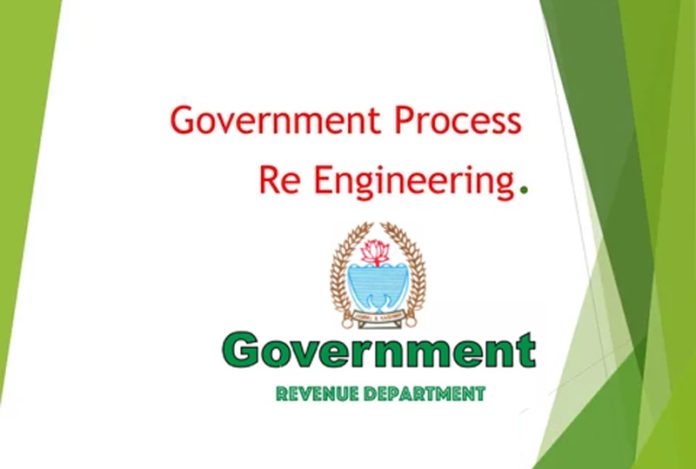The Department of Revenue has inaugurated a groundbreaking initiative named ‘Government Process Re-Engineering’ (GPR), envisioning a substantial augmentation in operational efficiency within the realm of online service delivery. This strategic endeavour seeks to optimise Governmental processes and service provision by prioritising citizen experience and streamlining procedures through the elimination of superfluous steps, thereby diminishing costs and service delivery timelines. The ultimate goal is to enhance transparency levels and alleviate administrative burdens. In pursuit of this objective, the Department has convened 20 district-level committees and GPR study groups tasked with providing constructive feedback and recommendations for the GPR of online services within the Revenue Department within a 15-day timeframe.
The imperative of soliciting feedback remains paramount to extracting optimal performance from any system. It is indeed gratifying to witness the Revenue Department accord significance to public sentiment regarding the services proffered by the department. The truth holds that the Revenue Department is confronted with a plethora of challenges, encompassing linguistic disparities, the imperative of digitization, demarcation constraints, and a myriad of other issues. The Revenue Department has expeditiously instituted a virtual ecosystem for the dispensation of citizen services, obviating the imperative for in-person visits to Governmental precincts-a substantial accomplishment by any evaluative criteria. The underlying resolve is palpable, and the GPR initiative is poised to ascertain the realization of the fundamental tenet of serving the citizenry with unassailable transparency. The GPR initiative, with its judiciously imposed time constraint of 15 days, stands as an exemplary stride. The constitution of teams for all 20 districts is a laudable facet, ensuring that input from every stratum of society is duly considered. Following preliminary consultations, the substantive implementation of reformatory measures can be implemented. Recognising the inherent fallibility of any system, there is an inexorable scope for refinement. The primary objective revolves around furnishing citizens with services characterised by seamlessness and transparency. The elucidation of authentic causes for delays, coupled with efficacious resolutions, assumes paramount importance in the purview of this undertaking.


